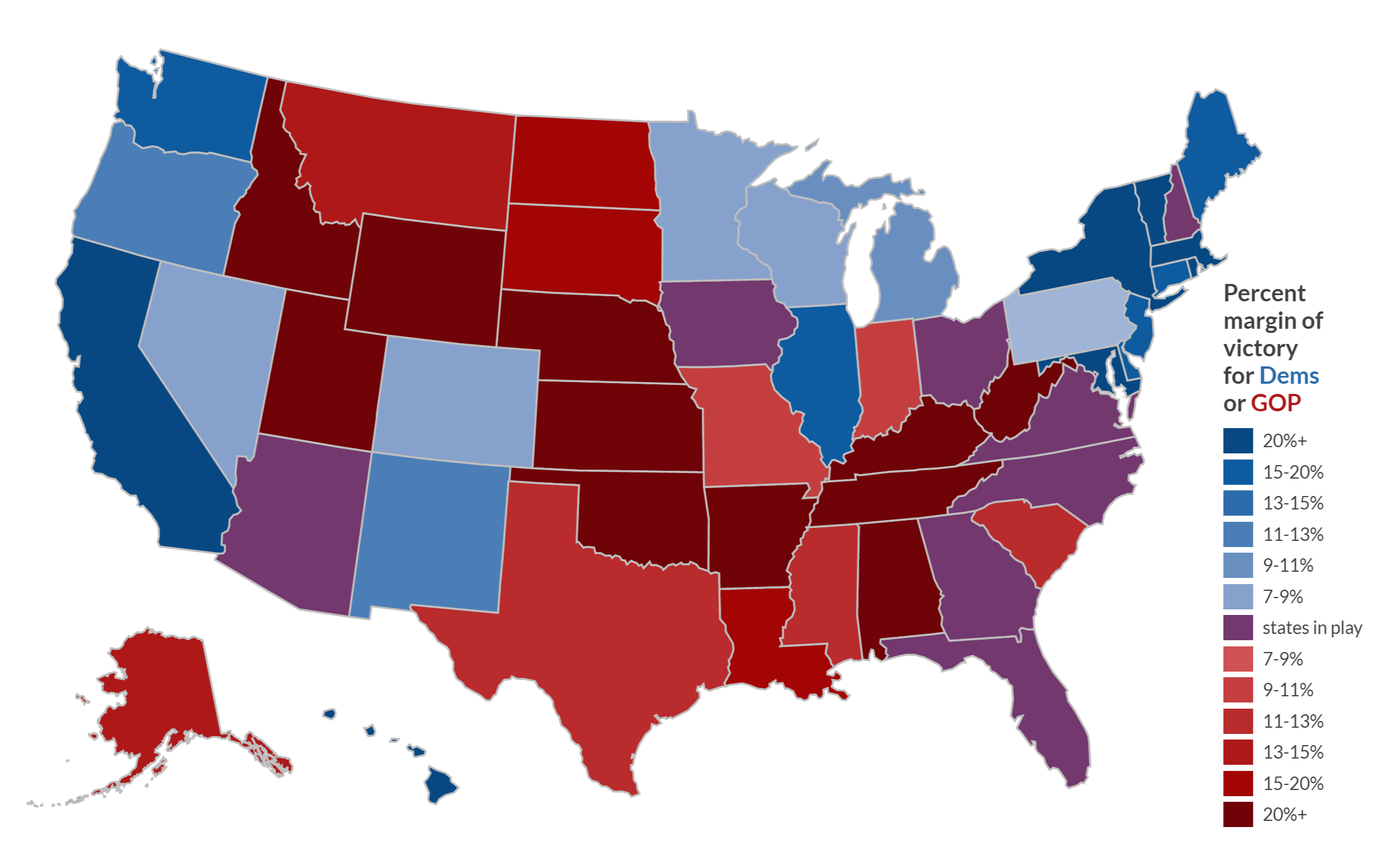Immigration is already a top issue in the 2016 presidential race, as it was in previous election cycles. In 2012, harsh rhetoric dramatically affected the Republican Party’s appeal with Hispanic and Asian voters — they lost over 70 percent of that vote in the presidential race — and among other immigrant-friendly voting blocs. Looking toward the 2016 election, factors such as shifting demographics and voter attitudes have increased the impact that a candidate’s position on the issue will have on his or her ultimate success at the ballot box. Below the Partnership provides resources to help candidates, voters, and journalists cut through the noise and make the case for smart politics and smart policy on immigration.
Poll Says Anti-Immigration Stance Is a Mistake for GOP Candidates
In June, the Partnership joined Romney 2012 Deputy Campaign Manager Katie Packer Gage and Burning Glass Consulting in conducting polling and focus groups of GOP likely caucus goers in Iowa, likely GOP primary voters in both New Hampshire and South Carolina, and likely general election voters in ten swing states.
The findings are clear: the benefits to being viewed as anti-immigration in a Republican primary are small, while the costs of doing so in the general election are extremely large.
Check out the Washington Post’s coverage, “How immigration could cripple the Republican nominee long before the 2016 election,” or read the findings for yourself here.
- Candidates perceived as anti-immigration will start the general election at a 24-point disadvantage among likely voters and at an even greater disadvantage among key electoral groups, like college-educated white women, young voters, and Hispanics — the very groups who will determine which party takes the White House.
- In the primaries, only about one in five GOP primary voters is an anti-immigration voter. This pool is not only small, but comprises hardline voters who are virtually unwinnable for any mainstream candidate. In other words, the benefits of being perceived as anti-immigration in the primaries are minimal, but the costs in the general election are huge.
Katie Packer Gage reflects on the 2012 Romney experience in a Politico Magazine piece: “I saw first-hand how the rhetoric on immigration during the GOP primary, from all of the candidates, painted our party in a negative light and came back to bite us in the general election.” Read the piece: “Don’t Repeat Mitt Romney’s Mistake on Immigration.”
Governor Romney himself reflected on his experience in 2012 and acknowledged, “I think the biggest mistake I made was not focusing very early on minority voters.” Watch the interview: “Mitt Romney’s Advice to the GOP: Focus on Minority Voters.”
Interactive Map Projects Potential Impact of Hispanic and Asian Vote
A recent PNAE study, “The Changing Face of the Nation,” and a coinciding interactive map quantify America’s shifting electorate across the country. By 2016, there will be 19.2 million potential new Hispanic and Asian voters joining the electorate. By 2020, this number jumps to 25.6 million. These figures represent Hispanics and Asians in the United States who:
- Are eligible to vote, but are unregistered
- Will turn 18 and become eligible to vote
- Are immigrants who will naturalize and become eligible to vote
If Hispanic and Asian voting patterns from the 2012 presidential election continue into future elections, many traditionally Republican states will become competitive or begin to lean Democratic. However, if Republicans are able to regain the same level of support they held among Hispanic and Asian voters in 2004, when George W. Bush won 44 percent of their vote, the rapidly growing pool of potential voters could represent an opportunity.
What is clear is that immigration is a gateway issue for both Hispanic and immigrant voters and that, if the issue were off the table, many voters from both groups would be up for grabs:
- Fifty percent of foreign-born voters do not identify with either political party.
- Foreign-born citizens are more than twice as likely as the general U.S. population to hold conservative or very conservative views, yet identify as Democrats.
U.S. Chamber of Commerce Report: Restructuring The U.S. Immigration System To Increase Security And Promote Growth
This paper, produced by the U.S. Chamber of Commerce, analyzes the claims of detractors that rely on simplistic calculations of “supply and demand” to suggest that immigration is bad for the economic health of Americans and the United States as a whole. This report shows that immigrants do not undermine U.S. wage growth or job growth – instead they play a key role in improving both in the long term.
Read more: U.S. Chamber of Commerce: “Restructuring The U.S. Immigration System To Increase Security And Promote Growth”
